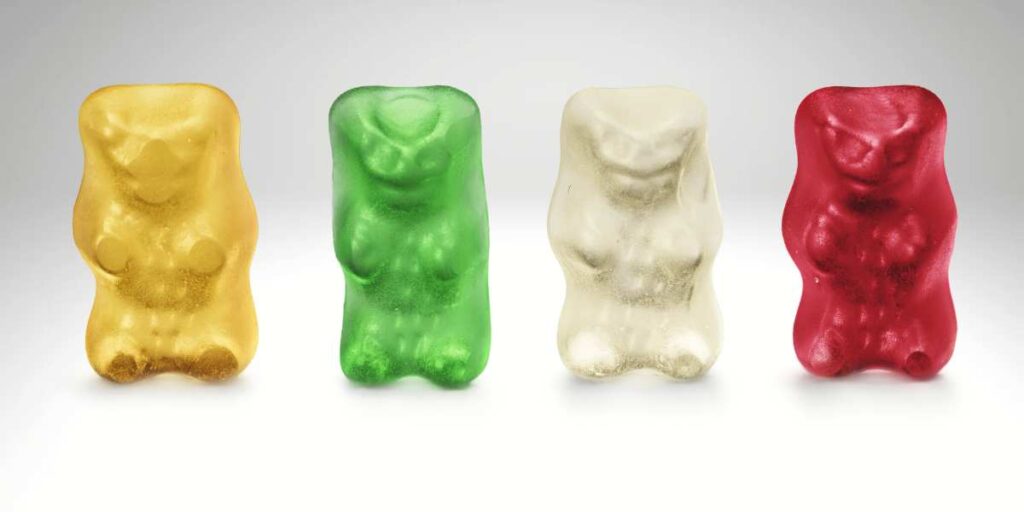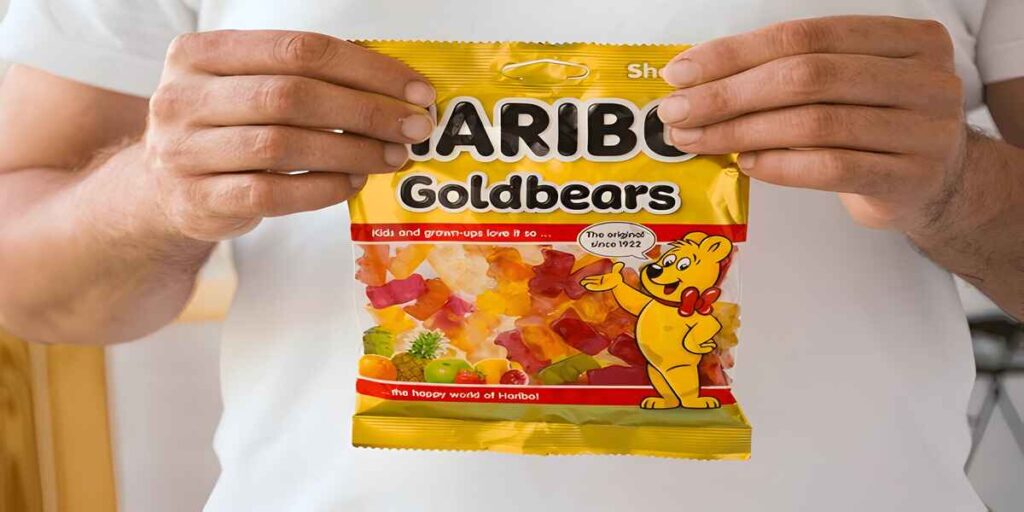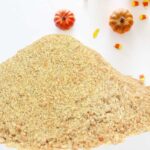Haribo is a famous German confectionery company founded by Hans Riegel Sr. in 1920. Haribo made its first gummy candy in 1960 and now offers products like Haribo Gold Bears and Haribo Sour Gummies. Whether Haribo gummies are halal or haram depends on the gelatin used. Some contain pork-based gelatin, making them haram in Islam, while others might use halal ingredients.
Are Haribo gummy bears halal or haram in Islam?
Based on the gelatin, Haribo’s gummy candies can be halal or haram. Turkish-made Haribo products with halal beef gelatin and a Halal-certified logo are permissible for Muslims. Other Haribo gummies may contain gelatin from a pig or animal that does not follow Islamic principles, making them haram.

A Halal certificate on the Haribo package is critical for Muslim consumers. It confirms that the product complies with Islamic dietary law.
Ingredients and Halal Compliance
Haribo’s products, like gummy bears, use gelatin from beef or pork and other ingredients, which may only be suitable for some.
- Glucose syrup is used to sweeten.
- Citric acid adds a tangy taste.
- Artificial flavors create different tastes.
- Carnauba wax from a Brazilian palm tree gives it shine.
- The gummy texture comes from the gelatin.
Certification Significance
The presence of a Halal certificate on Haribo packages is profound. This symbolic gesture assures that all production and ingredients are meticulously evaluated. For Muslims, this attesting by a recognized authority like the European Halal Certification Institute offers peace of mind.
Consumer Trust and Market Impact
Haribo has built strong consumer trust by meeting diverse dietary needs. Their commitment to halal certification shows dedication to quality and consumer choice, catering well to Muslims who enjoy sweets without concern.
Each package marked with the Halal-certified logo from Turkey confirms that the candy is safe and permissible for Muslims. This ensures adherence to strict Islamic dietary law and strengthens Haribo’s market presence among Muslim consumers.
Which ingredients do gummy bears have?
Haribo’s products, especially its gummy bears, contain gelatin, usually from beef or pork, which is a concern for halal dietary rules. Some countries offer vegetarian options with pectin or starch for gummy texture. Ingredients like glucose syrup, citric acid, and artificial flavors add sweetness and tartness. Carnauba wax from the Brazilian palm tree gives them shine. The exact ingredients can vary by manufacturing location.
| Ingredient | Source | Purpose |
|---|---|---|
| Gelatin | Beef or Pork | Base for a gummy texture |
| Pectin (optional) | Plant-based | Alternative to gelatin |
| Glucose Syrup | Corn | Sweetness |
| Citric Acid | Citrus fruits | Tartness |
| Artificial Flavors | Various chemicals | Flavor enhancement |
| Carnauba Wax | Brazilian Palm Tree | Shine |
Haribo’s use of animal gelatin

Haribo products use gelatin for their chewy texture. This gelatin comes from collagen found in animal bones and skins. The source may include pigs or cows.
Halal standards require proper Islamic rituals and prayers. Without certification and explicit confirmation, Muslims might doubt if these products fit a halal diet. Transparency is vital to trusting halal standards.
Perspective on consuming Haribo gummy bear
The Muslim community has varied perspectives on standard Haribo gummies. Some view them as not permissible because the gelatin source does not have halal certification. Islamic authorities stress the need for certified proof before considering them halal.
“The debate over gelatin in sweets remains a key concern for halal consumers.”
Others argue that chemical processing might transform the gelatin, removing impurities and making it acceptable. However, without clear evidence, many choose Jelly Belly or other certified alternatives to avoid forbidden ingredients.
Are Haribo gummy bears from Turkey halal?
Turkish-made Haribo gummy bears use halal ingredients like beef gelatin instead of pork gelatin. Turkey follows strict Halal standards and is supervised by Turkish authorities.
Critical differences in ingredients:
- Turkish-made Haribo gummy bears use halal ingredients.
- Beef gelatine replaces pork gelatine.
- The halal nature of the product is ensured by strict supervision.
- Turkey adheres to Islamic law in food production.
- Halal-certified products are available for Muslim consumers.
Taste and Texture Variations:
- Turkish gummies have a softer texture.
- Less sweet than those from other countries.
- Natural ingredients like fruit juice enhance flavor.
- Softer texture distinguishes Turkish gummies.
- Turkish gummies offer a unique fruity flavor.
The Appeal of Halal-Certified Gummies
The Turkish-made Haribo gummy bears offer a distinct choice for those who value halal standards. These gummies differ significantly in texture and flavor, making them popular among consumers. They are softer and chewier, and they have a fruity taste from natural ingredients and fruit juice. Adhering to halal standards under strict supervision and transparent labeling means that these gummies meet the legal means and guidelines necessary for approval by Muslim consumers.
What is the manufacturing process of a gummy bear?
In Haribo’s production facilities in Turkey, a hot liquid mixture of ingredients is poured into a mold filled with powdered starch. It is then cooled and set. Afterward, the gummy bear is extracted, packaged, and sold. Workers follow rigorous hygiene protocols using hairnets, gloves, and overshoes to ensure attention to detail and cleanliness in the manufacturing process.
- Ingredients mix into a hot liquid mixture.
- The mixture pours into molds on a starch mogul.
- Gummy bears are cool and set in molds.
- Workers ensure cleanliness and hygiene.
- Bears are packaged and sold.
What do Islamic scholars say about gummy bears being haram?
Muslims should always prioritize their well-being. The Quran states:
“And spend in the way of Allah and do not throw [yourselves] with your [own] hands into destruction [by refraining].” (Quran 2:195).
This verse highlights the importance of protection from harm.
Conclusion
Haribo’s signature gummy treats cause an ongoing debate in the Muslim community about their halal status. Lack of transparency in sourcing and gelatin ingredients leads to uncertainty. Without halal certification, many choose a conservative approach by avoiding non-certified candies. Halal Haribo assortment with clear halal certification provides Muslim consumers the needed assurance.
Frequently Asked Question(s)
Can Muslims eat Haribo gummy bears?
Haribo gummy bears made in Turkey are halal but not in other countries like Germany, the UK, Austria, Spain, and France. Always check if the gummy candy is halal before eating it.
Is gummy halal or haram?
The gelatin in gummies and jellies is made from the bones and skin of animals like bovines or pigs. If gelatin comes from pigs, it makes the product haram due to Islamic rules. This essential ingredient gives the jelly texture.
What gummy brand is halal?
Haribo is known worldwide for its gummies, but only those from Turkey are halal. They have 18 factories and five flavors, like Strawberry and green. Always check if they are from Turkish production to ensure they are halal.
What candy can Muslims have?
Halal sweets in Islam include Turkish delight, kunafa, and halva because their ingredients are permitted. Haribo gummy bears might be haram if they contain gelatin from certain types of animals or alcohol in their flavoring. Always check labels for halal ingredients.






